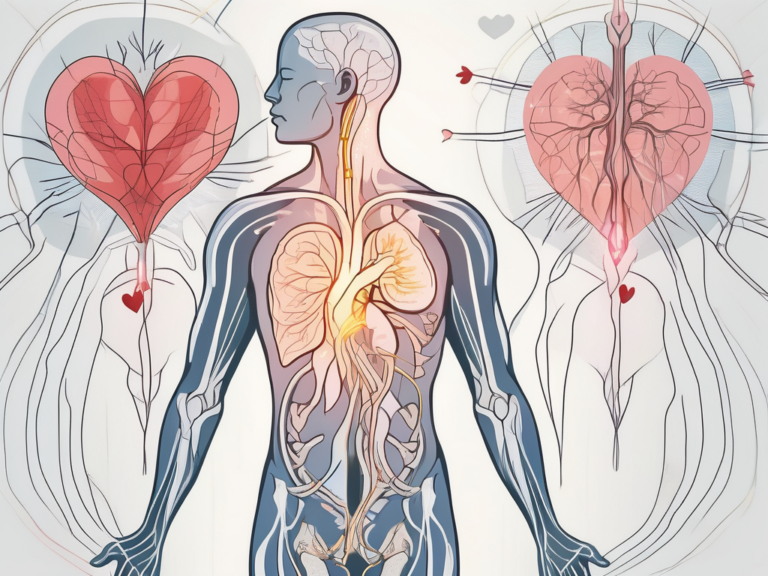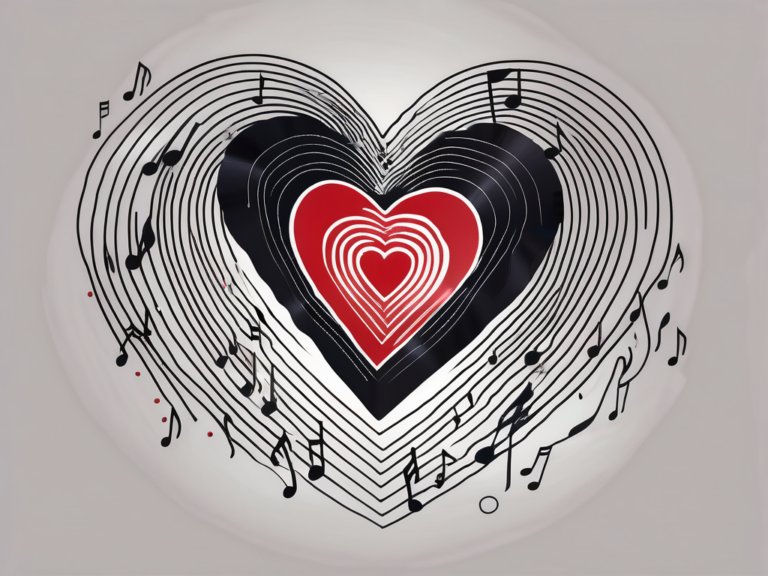Did I Have a Heart Attack? Take This Quiz to Find Out!
Have you been experiencing chest pain or shortness of breath? Are you worried that you might have had a heart attack? Well, fear not! We’ve got you covered with this interactive quiz that will help you determine if you’ve had a heart attack or if it’s just a false alarm. So, sit back, relax, and let’s get started on understanding this serious medical condition!
Understanding Heart Attacks
Before we dive into the quiz, let’s have a quick overview of what a heart attack actually is. In simple terms, a heart attack occurs when the blood flow to the heart is blocked, usually due to a clot or a build-up of fatty deposits in the arteries. When the heart doesn’t receive enough oxygen-rich blood, it can lead to serious consequences. But don’t worry, it’s not all doom and gloom! With medical advancements and early detection, survival rates have significantly improved!
What is a Heart Attack?
A heart attack, also known as myocardial infarction, happens when a part of the heart muscle is damaged or dies due to reduced blood supply. It’s like a tiny revolution taking place inside your body, and unfortunately, it’s not the cool kind of revolution!
Common Symptoms of a Heart Attack
The body has a unique way of alerting us when something is not right. Here are some common symptoms you should be aware of:
- Chest pain or discomfort
- Shortness of breath
- Nausea or vomiting
- Cold sweat
- Fatigue or weakness
If you’re experiencing any of these symptoms, remember that it’s always better to be safe than sorry!
Now that we have a basic understanding of what a heart attack is and its common symptoms, let’s delve a little deeper into the risk factors associated with this condition. While a heart attack can happen to anyone, certain factors can increase your chances of experiencing one.
One of the major risk factors is age. As we grow older, our arteries tend to become narrower and less flexible, making them more susceptible to blockages. Additionally, men are generally at a higher risk of heart attacks than women, especially before the age of 65. However, after menopause, women’s risk catches up to that of men.
Another significant risk factor is a family history of heart disease. If your parents or siblings have had heart attacks or other heart-related conditions, it’s essential to be vigilant and take preventive measures to reduce your own risk. Genetic factors can play a role in determining your susceptibility to heart attacks.
Other lifestyle factors, such as smoking, poor diet, lack of physical activity, and excessive stress, can also contribute to the development of heart disease and increase the likelihood of a heart attack. Making positive changes in these areas can significantly reduce your risk and improve your overall heart health.
Remember, knowledge is power when it comes to preventing heart attacks. By understanding the causes, symptoms, and risk factors associated with this condition, you can take proactive steps to protect your heart and lead a healthier life.
The Quiz: Did I Have a Heart Attack?
Now that you have a better understanding of heart attacks, let’s dive into the quiz! Here’s how it works:
How the Quiz Works
This quiz consists of a series of questions that will help determine whether or not you’ve had a heart attack. Simply answer the questions honestly and to the best of your knowledge. Remember, there are no right or wrong answers here!
Interpreting Your Quiz Results
After completing the quiz, you’ll receive your results, which will help you assess your situation. Keep in mind that this quiz is not a substitute for medical advice. It’s always important to consult with a healthcare professional if you have any concerns about your health.
Immediate Actions if You Suspect a Heart Attack
If you suspect you’re having a heart attack, it’s crucial to act fast! Here are some emergency steps you should take:
Emergency Steps to Take
1. Call emergency services immediately. Seconds matter when it comes to saving lives!
2. Chew and swallow an aspirin, unless you’re allergic or have been instructed otherwise by a healthcare professional.
3. Stay calm and try to relax as much as possible (easier said than done, we know!).
Importance of Quick Response
Remember, the sooner you receive medical attention, the better your chances of survival and reducing long-term damage. Don’t delay seeking help!
Prevention and Risk Factors
While the quiz will help you determine if you’ve had a heart attack, it’s equally important to understand how to prevent it from happening in the first place! Here are some lifestyle changes you can make to improve your heart health:
Lifestyle Changes for Heart Health
- Eat a healthy and balanced diet. Think fruits, vegetables, whole grains, lean proteins, and healthy fats.
- Get moving! Engage in regular physical activity, such as walking, jogging, swimming, or dancing.
- Manage stress. Find healthy ways to cope with stress, like practicing mindfulness or engaging in hobbies you enjoy.
- Avoid smoking or using tobacco products. It’s time to kiss those cigarettes goodbye!
- Limit alcohol consumption. Enjoying a glass of wine is okay, but moderation is key.
Medical Conditions Increasing Heart Attack Risk
It’s essential to be aware of any underlying medical conditions that may increase your risk of having a heart attack. Some factors to look out for include:
- High blood pressure
- High cholesterol levels
- Diabetes
- Obesity
If you have any of these conditions, it’s crucial to work closely with your healthcare provider to manage them and reduce your risk.
Post Heart Attack: Recovery and Rehabilitation
If you’ve had a heart attack, don’t worry! There’s a road to recovery, and you’re not alone in this journey. Here’s what you can expect:
Rehabilitation Process
After a heart attack, cardiac rehabilitation plays a crucial role in helping you regain strength and confidence. It usually includes supervised exercise programs, education, and support to help you make long-term changes for a healthier heart.
Emotional Recovery After a Heart Attack
It’s important to recognize that recovering from a heart attack isn’t just physical; it’s emotional too. You may experience a range of emotions, including fear, anxiety, and even depression. Don’t hesitate to seek support from loved ones or consider professional help to navigate these feelings.
So there you have it! We hope this quiz and article have provided you with valuable insights into heart attacks. Remember, an informed individual is an empowered individual! Take care of your heart, and don’t forget to share this quiz with your loved ones. Stay heart-healthy!






